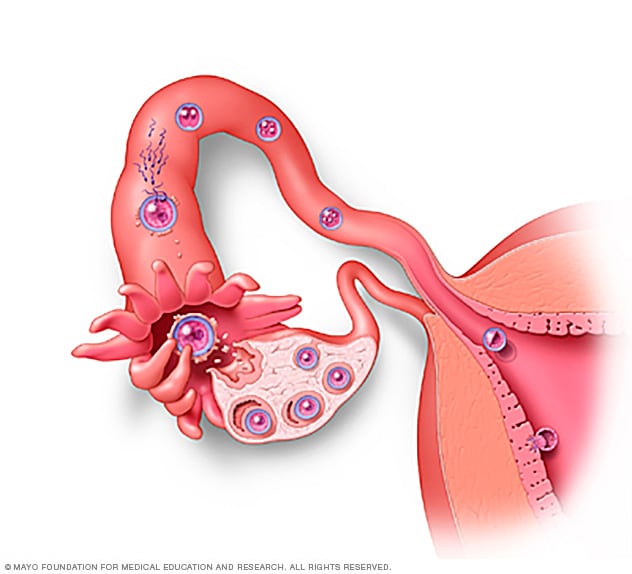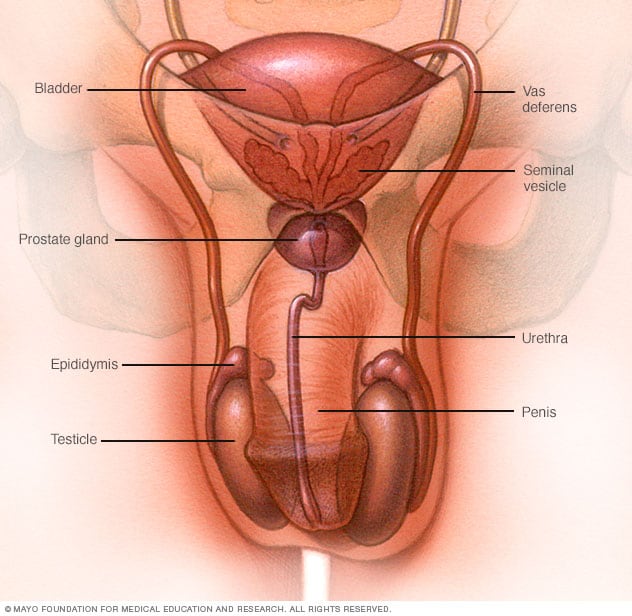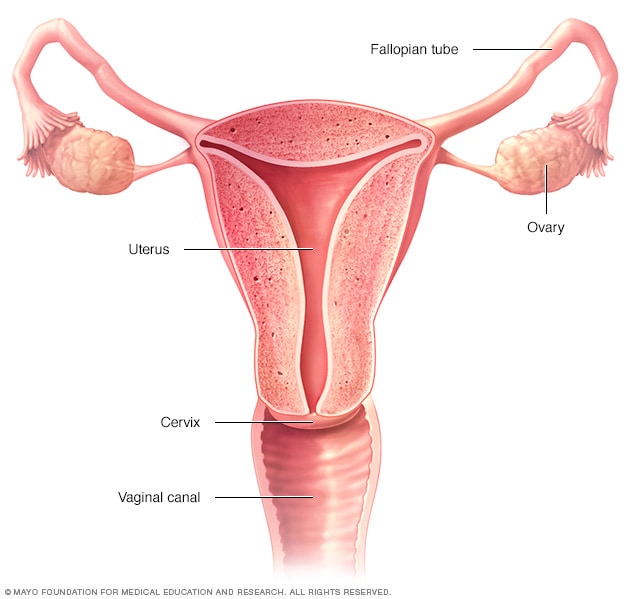Infertility Testing: Hysterosalpingogram (HSG) Test Explained
Many women struggle with infertility. Some have issues that cause infertility while others have unexplained infertility meaning there is no explanation why she is experiencing difficulties getting pregnant. One of the most common procedures that your gynecologist or infertility specialist may do is administering an infertility HSG test. This article will give you the specifics on what the procedure is, how it is done, how to prepare for the test, what doctors look for while performing the test, risk factors, and general information about HSG and the effect it has on fertility.
What is it and why is it done?
When you begin exploring your options for trying to conceive with infertility issues, there are many basic tests your doctor will do before doing an infertility HSG test. Usually, these tests are comprised of diagnostic testing and several different types of blood tests. This could include blood work for testing your hormone levels and ultrasounds to scan for problems with the uterus, cervix, fallopian tubes, and ovaries. Once these basic tests have been done the next step is getting the infertility HSG test. This is one of the few fertility tests where you can get results immediately.
The infertility HSG test is used to look for fibroids, blocked fallopian tubes, and any abnormalities with your uterus. The test itself is usually done at an outpatient surgery center although most clinics that specialize in fertility testing will have the necessary equipment on hand. This is a relatively quick procedure that lasts approximately 15 minutes from beginning to end.
How is it done?
During the infertility HSG test procedure, you will be required to lie on your back with your legs raised. Your doctor will then insert a contrast dye through your cervical opening into the uterus while taking x-rays at the same time. This contrast dye spreads throughout your uterus and fallopian tubes showing any blockages or abnormalities in the fallopian tubes.
When is HSG performed?
An infertility hysterosalpingogram test is typically done when a couple is having difficulty getting pregnant using conventional conception methods. Most doctors will opt to run a series of blood tests to check hormone levels such as estrogen, progesterone, FSH, and HCG. Also, an ultrasound may also be done before getting an infertility HSG test to make sure there are no easily visible problems with the ovaries, uterus, and fallopian tubes. While these tests are usually the first ones the doctor will administer to rule out any obvious causes of infertility. If more advanced testing needs to be done, this is when an infertility HSG test is done.
How will I feel during and after the procedure?
During the infertility HSG test, there are many different things that you could feel depending on your situation. During this HSG test, you may feel some discomfort or slight pain. If your fallopian tubes are blocked you may experience more pain than someone who has no signs of blockage in the fallopian tubes. Your doctor will usually prescribe Tylenol to take for the pain. If you know that you are going to have problems managing the uncertainties of the procedure you could ask your doctor if you could take medication before the procedure or even a sedative.
Some women could experience some cramping for several hours after having an infertility HSG test. This is completely normal and is no cause for alarm. Wear a panty liner if you notice that some of the dye is starting to leak out of your cervix. Aside from mild pain and discomfort, there are no risks associated with this procedure.
Any risks involved in taking this test?
As with any procedure, there are always risks involved. None of these risks are life-threatening and it can be more of an inconvenience than anything. Preparation for the test is minimal and fairly easy. Since you don’t have to change your habits, lifestyle or diet for this test preparing for it is very simple. At the time your doctor schedules your HSG test he or she will go over the procedure, what will be done, what they will be looking for, and any risks involved with the procedure. They will also go over how this infertility HSG test will affect you after the test has been done. The most severe risks involved include pain or possible infection depending on your situation.
How do the results affect the chances of pregnancy?
The results of an infertility HSG test are probably the most important results you will hear when it comes to trying to conceive. These results ultimately determine your next step in getting pregnant. If you have normal HSG levels showing no abnormalities or blockages, your doctor can rule out blocked fallopian tubes as a cause of fertility which may warrant additional testing. If the test results show that your fallopian tubes are blocked your doctor will discuss surgery procedures to unblock your fallopian tubes increasing your chances of getting pregnant. By electing to not have surgery you are decreasing your chances of getting pregnant and possibly permanent infertility. Surgery is risky and the decision to have a surgical procedure done as a result of the infertility HSG test outcome is a personal one.
If the outcome of an infertility HSG test shows that you have blocked fallopian tubes, it is important to know that this condition comes with many complications and risks. The risk of having a tubal or ectopic pregnancy increases significantly and is considered a serious condition. If the blocked tube ruptures, it then becomes a life-threatening condition.
Another complication that may arise with blocked fallopian tubes is finding a fertility specialist that will do an IVF or IUI procedure. Blocked tubes can actually decrease your chance of having successful procedures and implantation which will ultimately work against the procedure. With an IUI procedure, when sperm is injected into the uterus there is no chance of the egg being fertilized as the sperm cannot travel up the fallopian tubes. Doing an IVF with blocked fallopian tubes can cause a back up of fluid in the uterus, preventing an embryo from properly implanting.
If you choose to have surgery to correct the condition of having blocked fallopian tubes, your fertility specialist will schedule another infertility HSG test once you have healed successfully from this surgery. This is to ensure that the blocked tube is now open and clear which will be determined by seeing the dye passing through the tube as expected. Having a second HSG test after surgery will determine the next step on your road to conception and healthy pregnancy.
Other facts about HSG
If you decide to have the infertility HSG test done it is best that you take someone with you. There is nothing worse than having the procedure knowing that the possibility of discomfort and some mild pain is present without any support. If the results are showing up as positive for blocked tubes the emotional roller coaster you may take a ride on will be overwhelming. Having someone there to support you while trying to figure out how to handle “bad news” will help keep your sanity and your stress level to a minimum.
Article Source: http://EzineArticles.com/8389950
JOAS MEDICAL DIAGNOSTIX, Ikotun Lagos Nigeria, offers comprehensive infertility screening tests for both couples like Transvaginal Scan for uterine and ovarian functions, Ovulation/follicular tracking, HSG to evaluate the fallopian tubes, blood tests for hormone check, semen analysis, etc. We also offer a simple assisted reproductive procedure like INTRAUTERINE INSEMINATION [IUI]. For an accurate assessment of your fertility situation, contact us at JOAS MEDICAL DIAGNOSTIX, Ikotun Lagos Nigeria.
For FREE Consultation and FREE Counseling. Also for Quality and Accurate Medical Diagnostic Tests Contact JOAS MEDICAL DIAGNOSTIX
JOAS MEDICAL DIAGNOSTIX——-WE ARE AN ULTRAMODERN MEDICAL IMAGING CENTER. WE ARE EXPERTS IN ULTRASOUND SCAN SERVICES, 3D/4D COLOUR DOPPLER SCAN SERVICES, X-RAY/RADIOLOGY SERVICES, ECG SERVICES, INFERTILITY SERVICES, HSG SERVICES, LABORATORY SERVICES,BLOOD BANKING SERVICES , DNA SERVICES, AND HEALTH CONSULTANCY/COUNSELLING SERVICES.
We are located at
JOAS HOUSE, 2, Okesuna Street,
Opposite The Synagogue Church Busstop,
Bolorunpelu, Ikotun, Lagos
Postcode: 100265
Nigeria.
TEL:
08032509975,
08037668535,
08156867756,
08058166504,
08096463062
EMAIL:
joasmedicaldiagnostix@yahoo.com
joasmedicaldiagnostix@gmail.com
DISCLAIMER:
The contents, blogs, and postings provided in this site are offered strictly for informational purposes only and should not be construed as legal, medical nor financial advice on any matter. We have made every effort to ensure the accuracy of the information presented, and if you have any questions regarding the contents please contact us.
The information provided on this site is subject to change without notice.
This site may contain links to other internet sites, we are not responsible for the privacy, practices nor the content of such sites, nor their relationships






